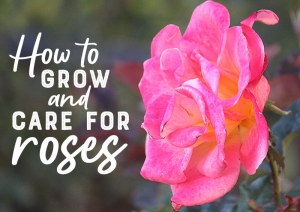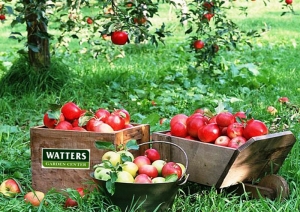Healthy care for winter houseplants
Big Idea
- How do I save my potted plants in the winter? Should I mist my plants daily in winter?
- Are coffee grounds good for houseplants? Why are my indoor plants dying in winter?
- How often should you water indoor houseplants in the winter? Should I keep plants away from the window in winter?
- Is it OK to repot indoor plants in winter?
- Read more…
Your houseplants need help to thrive through the chillier months of winter
Your houseplants aren't immune to life-threatening challenges in winter, even though they live in your temperature-controlled climate. Indoor plants are affected by temperature fluctuation from daytime heat to evening chill, dry air, short days, and light deprivation. Your houseplants need help to thrive through the chillier months of winter. Here are my insider tips for better winter care.
Adjust Their Water
It sounds counter intuitive, but indoor plants need less water through winter. Different plants have different water needs—drought-tolerant cacti and other succulents need virtually no water in winter. Some go entirely dormant. Therefore, less water is required to keep them hydrated, and overdoing it can lead to yellowing leaves, even root rot.
The soil on the surface dries quickly through winter, but that's not a good indicator the plant needs water. Use a professional water meter for the best results. Poke your finger directly in the dirt to see if it's dry an inch or two below the surface. That's when it's time to pull out the watering can.
Insider Tip - Use temperate water, about 68 degrees, to avoid shocking your plants at the root level.
Adjust Their Humidity
Low humidity levels are the most significant hurdle for winter houseplants. Humidity levels insider your home often drop below 20% through winter, and plants prefer a level closer to 50%. If you have a humidifier in your home, move your plants to a spot where they enjoy the humid benefits. If you do not have a humidifier, there are garden alternatives.
Start by clustering your plants in groups. Plants naturally release water through their leaves by transpiring, so grouping them will put that moisture to good use. The kitchen and bathrooms are the best rooms to congregate plants for the steam from showers and boiling water.
Another good option is the old trick of placing your plants on or near a tray of water. Place stones in the water, higher than the water level, and set your houseplants container on top of the rocks. As the water tray evaporates, you create a humid micro-climate around each plant.
Misting tends to be better at making the gardener feel good than your plant. You give the plant some relief, but it's only a quick blast of moisture. You need to mist multiple times a day to see any benefit because the home's furnace evaporates water quickly. Give it a try if you only have a few plants. It's challenging to over-mist an indoor plant through winter.

Attention to Their Temperature
Most houseplants are comfortable with daytime temperatures between 65 to 75 degrees and nighttime temps above 50. Extreme fluctuation in temperature kills houseplants just as quickly as prolonged periods of heat or cold. Keep plants away from cold drafts and heat caused by radiators, ovens, heaters, and fireplaces.
Let Them Follow the Sun
Not only are there fewer hours of sunlight in winter, but the rays shine at lower angles. You may need to relocate houseplants to a brighter room or supplement their light. South and West facing rooms are ideal spots for winter plants. Single pane windows are very drafty in winter. It's a good idea to keep them several feet away from the drafty winter window, no matter how bright they are through the day.
Insider Tip - Rotate pots when plants are watered. This ensures plants get sun and grow evenly.

Give Them a New Years Diet
Plants grow slowly through winter. Avoid the use of synthetic plant foods. Houseplants prefer a monthly compost tea through until signs of new growth or the green of the existing leaves appear to grow deeper. Watters Root & Grow is a composted tea ideal for better healthy plants inside.
Very little care is needed by houseplants through winter but acts on issues quickly. Insects and leaf disease crop up quickly, even in winter. Fungus Gnats have been an issue all winter with local gardeners. Treat right away with Triple Action to eliminate adult bugs and Systemic Granules for long-term effects on younger larvae. If in doubt, visit our nursery professionals before things get out of hand. See my article on 10 Houseplant Pest and How to Treat Them.

Give Them a Proper Burial
The point is, it's OK to start over with a fresh new plant sometimes. Give up on the ugly plant you've been nursing for the last six months. Once a plant fades to ugly, they rarely come back into something you want living in your home. I'm giving you permission to through away that ugly Poinsettie dropping leaves all over your living room or the Pothos taking over your kitchen cabinets. We live in America; for $30, you can have a brand new vivacious plant thriving in your home any would be proud to grow.
We ended on some levity, but let me invite you to this seasons new garden class series full of informative fun:) Every Saturday morning at 9:30, I host free garden classes correct for our garden season. Here are the garden classes for the next few weeks.
Jan 22 - Top Local Landscapes with Flair
Jan 29 - Why January is the Month to Plant Wildflowers
Feb 5 - Winter Soil Preparation for Growing Success
Feb 12 - Mountain Fruit Trees and the Heavy Harvest
Until next week, I'll be helping locals grow better houseplants here at Watters Garden Center.
Ken Lain can be found throughout the week at Watters Garden Center, 1815 W. Iron Springs Rd in Prescott, or contacted through his website at WattersGardenCenter.com or Top10Housplants.com
Ken Lain can be found throughout the week at Watters Garden Center, 1815 W. Iron Springs Rd in Prescott, or contacted through his website at WattersGardenCenter.com or Top10Housplants.com




























